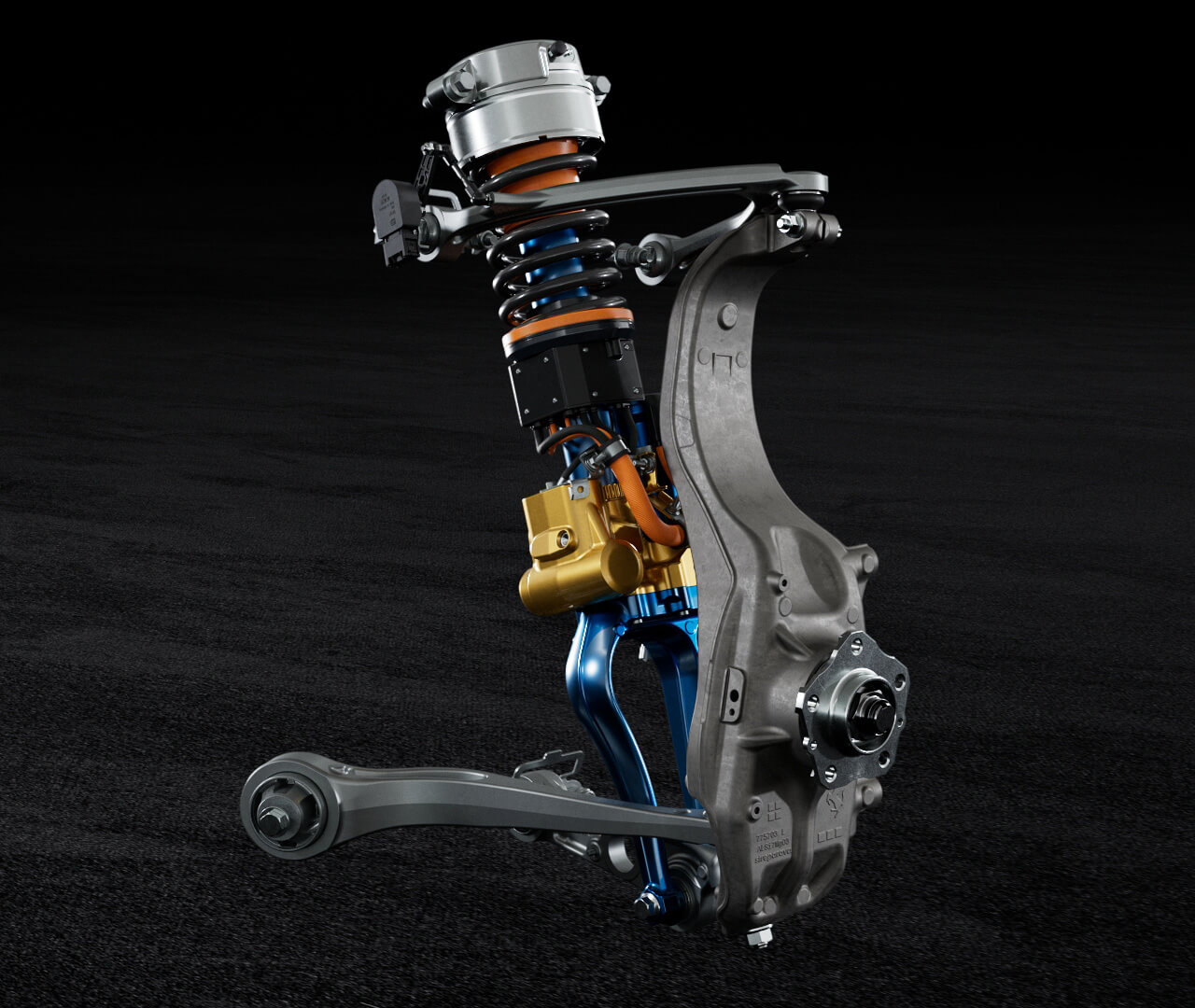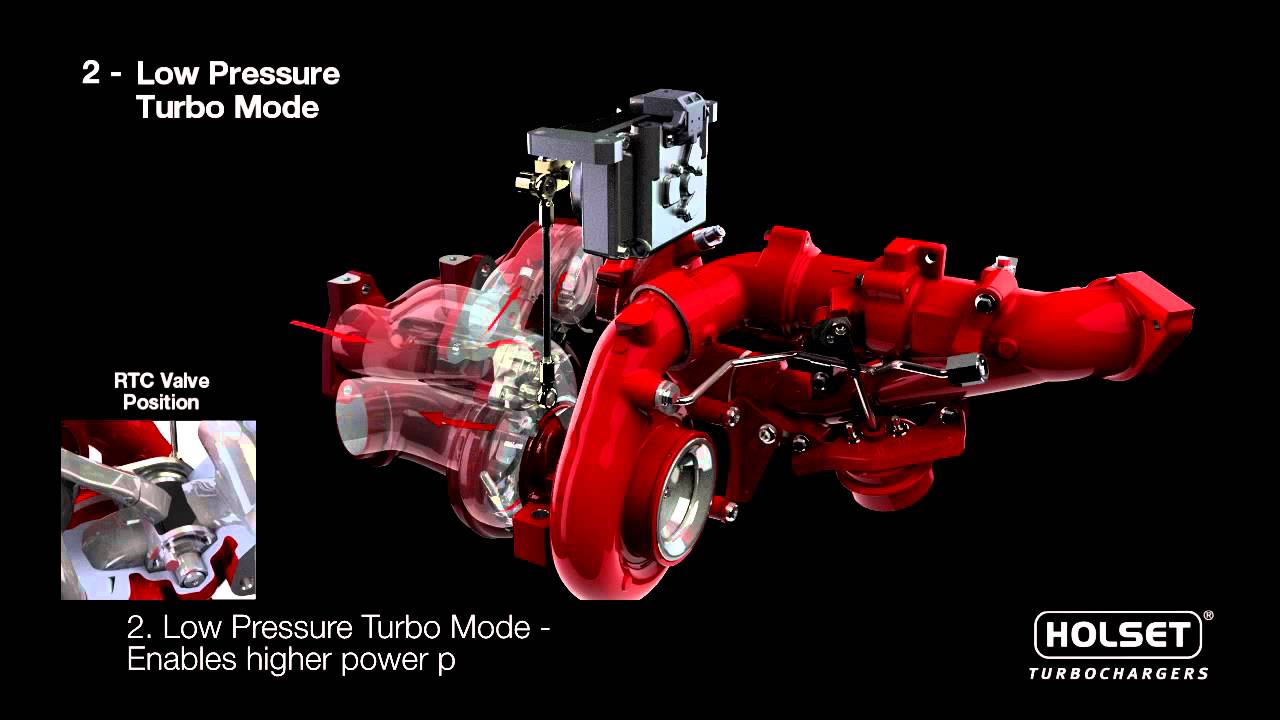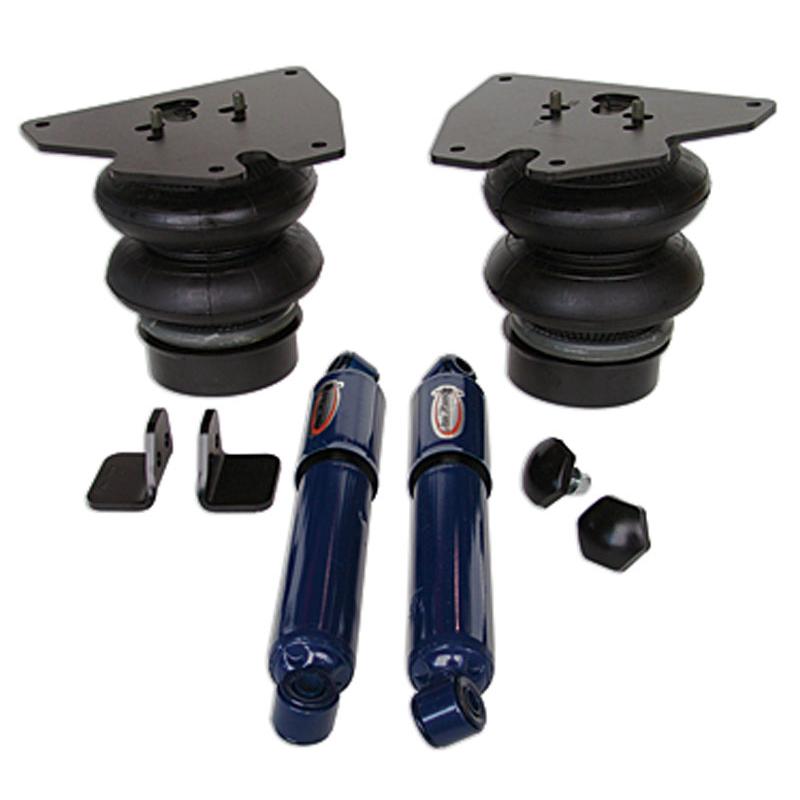Dealer Technology Solutions: Transforming the Automotive Industry
Dealer technology solutions are revolutionizing the automotive industry, empowering dealerships to enhance customer experiences, streamline operations, and drive growth. From customer relationship management (CRM) systems to digital marketing tools, technology […]

Dealer technology solutions are revolutionizing the automotive industry, empowering dealerships to enhance customer experiences, streamline operations, and drive growth. From customer relationship management (CRM) systems to digital marketing tools, technology is transforming how dealerships interact with customers, manage inventory, and optimize their sales processes.
This comprehensive guide explores the evolution of dealer technology, key solutions available, implementation strategies, and emerging trends shaping the future of the automotive retail landscape.
The Evolution of Dealer Technology
The automotive industry has witnessed a dramatic transformation in the way dealerships operate, driven by the rapid evolution of technology. From rudimentary tools to sophisticated software solutions, technology has fundamentally reshaped dealership operations, customer interactions, and the overall car buying experience.
Early Days of Technology in Dealership Operations
The early days of technology in dealerships were characterized by the adoption of basic tools to automate tasks and improve efficiency. Early technology implementations focused on improving operational efficiency and streamlining administrative tasks.
- Typewriters and Calculators: These tools were used for record-keeping, inventory management, and financial calculations, replacing manual methods and reducing errors.
- Fax Machines: Fax machines enabled dealerships to communicate quickly and efficiently with suppliers, customers, and other stakeholders.
- Basic Computer Systems: Early computer systems were introduced for tasks such as inventory management, customer relationship management (CRM), and basic financial accounting.
The Rise of Digital Solutions and Their Impact
The 1990s and early 2000s saw the emergence of more advanced digital solutions that revolutionized dealership operations. These advancements brought about a paradigm shift in how dealerships interacted with customers and managed their businesses.
- Dealer Management Systems (DMS): DMS software consolidated various dealership operations into a single platform, streamlining processes such as sales, finance, service, and parts.
- Electronic Data Interchange (EDI): EDI enabled seamless data exchange between dealerships and their suppliers, improving inventory management and reducing manual processes.
- Websites and Online Marketing: Dealerships began establishing online presences, allowing customers to research vehicles, view inventory, and even request financing online.
Transforming the Customer Experience: Digital Tools and Innovations
The digital age has ushered in a new era of customer-centricity, with technology playing a pivotal role in transforming the customer experience.
- Mobile Apps: Dealership mobile apps provide customers with convenient access to services such as scheduling appointments, tracking vehicle maintenance, and accessing account information.
- Virtual Showrooms and Online Sales: The rise of virtual showrooms and online sales platforms has made it possible for customers to browse inventory, configure vehicles, and even purchase vehicles entirely online.
- Customer Relationship Management (CRM): CRM systems allow dealerships to collect and analyze customer data, personalize communications, and provide tailored experiences.
Key Dealer Technology Solutions
The automotive industry is rapidly evolving, driven by technological advancements and changing consumer preferences. Dealerships are increasingly embracing technology to streamline operations, enhance customer experiences, and stay ahead of the competition. Key dealer technology solutions play a pivotal role in this transformation.
Customer Relationship Management (CRM) Systems
CRM systems are designed to manage customer interactions and data throughout the entire customer lifecycle.
- Centralized Customer Database: CRMs consolidate customer information, including contact details, purchase history, service records, and communication preferences. This unified view provides dealerships with a comprehensive understanding of their customers.
- Lead Management: CRMs streamline lead capture, qualification, and nurturing processes. They enable dealerships to track lead sources, prioritize prospects, and automate follow-up communications.
- Marketing Automation: CRMs offer automated email campaigns, targeted promotions, and personalized communication based on customer behavior and preferences. This enhances customer engagement and drives sales.
- Sales Process Management: CRMs provide tools to track sales opportunities, manage sales pipelines, and monitor sales performance. They help dealerships optimize their sales processes and improve conversion rates.
- Customer Service: CRMs facilitate efficient customer service interactions, including appointment scheduling, service reminders, and issue resolution. They improve customer satisfaction and loyalty.
By implementing a CRM system, dealerships can gain valuable insights into customer behavior, personalize interactions, and enhance customer satisfaction, ultimately driving sales and revenue growth.
Dealer Management Systems (DMS), Dealer technology solutions
DMS are comprehensive software solutions that manage various aspects of dealership operations, including sales, service, parts, and finance.
- Inventory Management: DMS systems track vehicle inventory, manage stock levels, and facilitate efficient vehicle ordering and allocation. They provide real-time visibility into inventory availability and help dealerships optimize stock levels.
- Sales and Finance: DMS streamline sales processes, including vehicle pricing, financing options, and lease agreements. They automate tasks such as credit checks, loan applications, and deal structuring.
- Service and Parts: DMS manage service appointments, track repair history, and control parts inventory. They facilitate efficient service operations and improve customer satisfaction.
- Reporting and Analytics: DMS generate comprehensive reports and dashboards, providing insights into dealership performance, sales trends, and customer behavior. This data-driven approach enables dealerships to make informed decisions and optimize operations.
- Integration with Other Systems: DMS often integrate with other dealer technology solutions, such as CRMs and digital marketing platforms, to create a seamless and efficient workflow.
DMS solutions provide dealerships with a centralized platform for managing all aspects of their operations, enhancing efficiency, improving customer service, and driving profitability.
Inventory Management Systems
Inventory management systems specifically focus on managing vehicle inventory, optimizing stock levels, and streamlining related processes.
- Real-Time Inventory Tracking: Inventory management systems provide real-time visibility into vehicle availability, location, and condition. This helps dealerships manage inventory effectively and avoid stockouts or overstocking.
- Automated Ordering and Allocation: These systems automate vehicle ordering and allocation processes, ensuring that dealerships have the right vehicles in stock at the right time. They also help optimize vehicle transportation and logistics.
- Vehicle Valuation and Pricing: Inventory management systems provide tools for vehicle valuation and pricing, ensuring that dealerships offer competitive prices while maintaining profitability.
- Inventory Analysis and Reporting: These systems generate reports and dashboards that provide insights into inventory performance, sales trends, and customer demand. This data helps dealerships make informed decisions about inventory management and optimize stock levels.
Effective inventory management is crucial for dealerships to maximize sales opportunities, minimize costs, and ensure customer satisfaction.
Digital Marketing Tools
Digital marketing tools are essential for dealerships to reach potential customers online and drive traffic to their websites and showrooms.
- Search Engine Optimization (): involves optimizing dealership websites and online content to rank higher in search engine results pages (SERPs). This helps dealerships attract organic traffic and reach potential customers searching for vehicles online.
- Pay-Per-Click (PPC) Advertising: PPC advertising allows dealerships to target specific s and demographics with paid ads on search engines and social media platforms. This can generate immediate leads and drive traffic to dealership websites.
- Social Media Marketing: Social media platforms provide dealerships with a powerful channel to connect with customers, share content, and build brand awareness. They can use social media to promote new vehicle models, showcase customer testimonials, and engage with followers.
- Email Marketing: Email marketing allows dealerships to nurture leads, promote special offers, and stay in touch with customers. They can segment their email lists based on customer interests and preferences to deliver targeted messages.
- Website Analytics: Website analytics tools provide insights into website traffic, user behavior, and conversion rates. This data helps dealerships optimize their websites and digital marketing campaigns for better results.
Digital marketing tools enable dealerships to reach a wider audience, engage potential customers, and generate leads online, ultimately driving sales and revenue growth.
Implementing Dealer Technology Solutions
Implementing dealer technology solutions requires careful planning and execution to ensure a smooth transition and maximize return on investment. This involves considering factors like budget, dealership size, and specific needs, followed by a systematic approach to implementation, including data migration, training, and ongoing support.
Selecting the Right Technology Solutions
Choosing the right technology solutions is crucial for successful implementation. This involves a comprehensive assessment of the dealership’s needs, budget, and existing infrastructure.
- Identify Business Goals: Clearly define the objectives you want to achieve with technology, such as improving customer service, streamlining operations, or increasing sales.
- Evaluate Available Solutions: Research and compare different technology solutions available in the market, considering their features, functionality, and compatibility with your existing systems.
- Consider Scalability: Choose solutions that can scale with your dealership’s growth and adapt to future needs.
- Prioritize Integration: Select solutions that can integrate seamlessly with your existing systems to avoid data silos and streamline workflows.
- Seek Expert Advice: Consult with industry experts or technology consultants to get insights and guidance on selecting the best solutions for your specific needs.
Implementing Dealer Technology Solutions
Once the technology solutions are selected, the implementation process should be carefully planned and executed to ensure a smooth transition and minimize disruption to business operations.
- Develop a Detailed Implementation Plan: This plan should Artikel the project timeline, key milestones, roles and responsibilities, and communication strategy.
- Data Migration: Ensure a smooth and accurate transfer of data from existing systems to the new technology solutions, taking into account data integrity and security.
- User Training: Provide comprehensive training to dealership staff on how to use the new technology solutions effectively. This includes hands-on training, online resources, and ongoing support.
- Testing and Quality Assurance: Thoroughly test the new technology solutions before going live to ensure they are functioning correctly and meeting expectations.
- Go-Live and Support: Launch the new technology solutions with a well-defined communication strategy and provide ongoing support to address any issues or questions.
Best Practices for Integration and Optimization
Integrating and optimizing dealer technology solutions is essential for maximizing their benefits and achieving desired business outcomes.
- Establish Clear Integration Goals: Define specific objectives for integration, such as streamlining workflows, improving data accuracy, or enhancing customer experience.
- Prioritize Data Consistency: Ensure data integrity and consistency across all integrated systems to avoid errors and inconsistencies.
- Monitor and Analyze Performance: Regularly monitor the performance of integrated solutions and analyze data to identify areas for improvement and optimization.
- Continuously Evaluate and Adapt: Stay informed about industry trends and advancements in technology to evaluate and adapt solutions as needed.
The Impact of Technology on Dealership Operations

The automotive industry has undergone a dramatic transformation in recent years, driven by the rapid adoption of technology. From the way dealerships sell cars to how they service vehicles, technology has revolutionized every aspect of the business. This section explores the profound impact of technology on dealership operations, highlighting its role in streamlining processes, improving efficiency, and enhancing customer satisfaction.
Impact on Sales
Technology has fundamentally changed the way dealerships sell cars. The internet has become the primary source of information for car buyers, with consumers researching vehicles, comparing prices, and even securing financing online. This shift has led dealerships to invest heavily in digital marketing strategies, online showrooms, and customer relationship management (CRM) systems.
- Online Showrooms: Dealerships have embraced online showrooms, offering virtual tours of their inventory and allowing customers to browse and configure vehicles from the comfort of their homes. This provides a convenient and immersive experience, enabling buyers to explore different models and options without visiting the physical dealership.
- Digital Marketing: Dealerships utilize digital marketing channels, such as search engine optimization (), pay-per-click (PPC) advertising, and social media marketing, to reach potential customers online. These strategies target specific demographics and interests, maximizing the effectiveness of advertising campaigns and driving traffic to dealership websites.
- CRM Systems: CRM systems help dealerships manage customer interactions, track leads, and nurture relationships. These platforms provide a centralized hub for customer data, enabling dealerships to personalize communication, offer tailored recommendations, and improve customer service.
Impact on Service
Technology has significantly improved the efficiency and customer experience in dealership service departments. Advanced diagnostic tools, online appointment scheduling, and customer communication platforms have streamlined service operations and enhanced customer satisfaction.
- Diagnostic Tools: Modern diagnostic tools enable technicians to quickly identify and diagnose vehicle issues, reducing repair times and minimizing customer downtime. These tools often provide detailed information about the problem, allowing technicians to perform repairs more efficiently and effectively.
- Online Appointment Scheduling: Dealerships offer online appointment scheduling, allowing customers to book service appointments at their convenience, eliminating the need for phone calls and reducing wait times. Online scheduling systems also help dealerships manage service capacity and optimize technician schedules.
- Customer Communication Platforms: Dealerships utilize text messaging, email, and mobile apps to communicate with customers throughout the service process, providing updates on repair progress, estimated completion times, and billing information. These platforms enhance transparency and keep customers informed, leading to increased satisfaction.
Impact on Finance
Technology has transformed the way dealerships handle financing. Online lending platforms, digital loan applications, and electronic document signing have streamlined the financing process, making it more convenient and efficient for both customers and dealerships.
- Online Lending Platforms: Online lending platforms connect customers with multiple lenders, allowing them to compare interest rates and loan terms from the comfort of their homes. This increased transparency and competition benefits customers by offering them more favorable financing options.
- Digital Loan Applications: Digital loan applications allow customers to submit their financing information electronically, reducing paperwork and speeding up the approval process. Dealerships can process applications more efficiently and provide customers with quicker financing decisions.
- Electronic Document Signing: Electronic document signing allows customers to sign loan agreements and other documents electronically, eliminating the need for physical signatures and reducing the time required to complete the financing process. This convenience enhances the overall customer experience.
Impact on Marketing
Technology has provided dealerships with powerful tools to reach and engage with customers. Social media marketing, targeted advertising, and data analytics have revolutionized the way dealerships market their products and services.
- Social Media Marketing: Social media platforms have become essential for dealerships to connect with potential customers, share information about new vehicles, promote special offers, and engage with their audience. Social media marketing allows dealerships to build brand awareness, foster customer loyalty, and generate leads.
- Targeted Advertising: Technology enables dealerships to target specific demographics and interests with their advertising campaigns. This ensures that advertising dollars are spent effectively, reaching the most likely customers and maximizing return on investment.
- Data Analytics: Data analytics tools provide dealerships with insights into customer behavior, preferences, and purchasing patterns. This data allows dealerships to personalize marketing messages, tailor promotions, and optimize their marketing strategies for better results.
Emerging Trends in Dealer Technology: Dealer Technology Solutions
The automotive industry is undergoing a rapid transformation, driven by technological advancements that are reshaping the way dealerships operate and interact with customers. Emerging technologies like artificial intelligence (AI), blockchain, and virtual reality (VR) are poised to revolutionize the dealer landscape, creating new opportunities and challenges for businesses.
The Impact of AI on Dealership Operations
AI is transforming various aspects of dealership operations, from customer service to inventory management. AI-powered chatbots can handle routine customer inquiries, freeing up sales staff to focus on more complex transactions. AI algorithms can analyze customer data to predict buying patterns, optimize pricing strategies, and personalize marketing campaigns. AI-driven systems can also streamline inventory management by predicting demand, optimizing stock levels, and reducing waste.
Blockchain Technology in the Automotive Industry
Blockchain technology is gaining traction in the automotive industry, offering secure and transparent solutions for various processes. Blockchain can be used to track vehicle ownership, manage supply chains, and facilitate secure payments. Blockchain-based platforms can also enable peer-to-peer vehicle sales, reducing the need for intermediaries and streamlining transactions.
Virtual Reality and the Future of Car Buying
VR technology is revolutionizing the car buying experience by creating immersive and interactive virtual showrooms. Customers can explore different vehicle models in detail, customize their preferences, and experience the driving sensation virtually. VR can also be used for training purposes, allowing dealership staff to learn about new models and technologies in a simulated environment.
Comparison of Traditional and Emerging Dealer Technology
| Feature | Traditional Dealer Technology | Emerging Trends |
|---|---|---|
| Customer Interaction | Phone calls, emails, in-person visits | AI-powered chatbots, personalized marketing, VR showrooms |
| Inventory Management | Manual tracking, spreadsheets | AI-driven systems, predictive analytics |
| Sales Processes | Paper-based forms, manual data entry | Digital platforms, automated workflows |
| Transparency and Security | Limited data sharing, potential for fraud | Blockchain technology, secure data management |
Outcome Summary

As the automotive industry continues to evolve, embracing dealer technology solutions is no longer an option but a necessity. By leveraging these powerful tools, dealerships can stay ahead of the curve, enhance customer satisfaction, and unlock new opportunities for growth. This guide has provided a roadmap for navigating the complexities of dealer technology, empowering dealerships to embrace innovation and thrive in the digital age.
Dealer technology solutions are becoming increasingly important for businesses to streamline operations and enhance customer experience. One company that has emerged as a leader in this space is mccown technology corporation , offering a comprehensive suite of solutions designed to address the unique needs of dealerships.
Their focus on innovation and customer satisfaction has helped them establish a strong reputation in the industry, driving the adoption of advanced dealer technology solutions.









